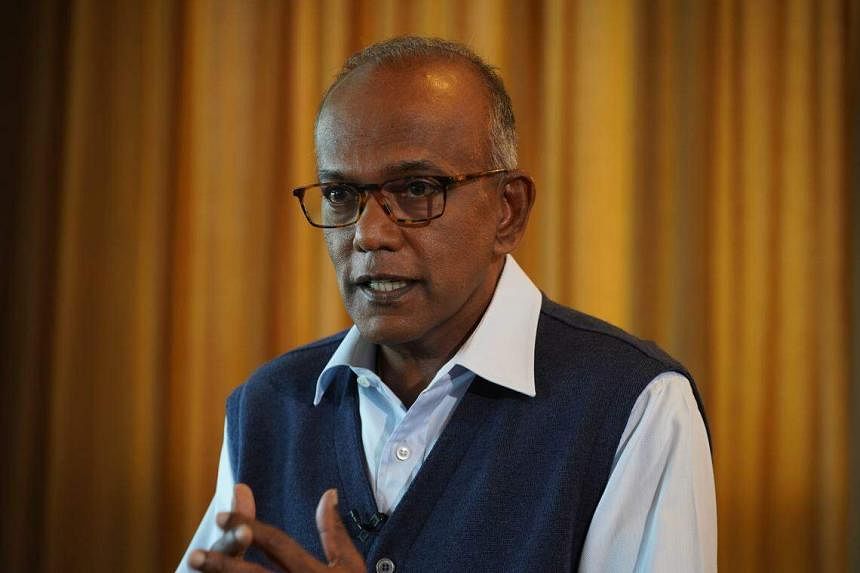SINGAPORE - As the Middle East and China become closer through economic and trade links, it is natural that Gulf countries will also look at additional facets of the relationship such as security, said Minister for Home Affairs K. Shanmugam on Wednesday.
This is even as countries in the Middle East recognise that there is no substitute today for the United States when it comes to the region’s security, though they can no longer be sure if the US is as reliable a security partner as it was in the past, he said.
Noting that the US domestic situation has changed and that some contemporary US presidents are not as in tune with international affairs as their predecessors, Mr Shanmugam said: “You know that this is the country that can provide you with security, but you’re no longer sure that they will stand by (you) if something happens, then naturally you start looking at alternatives.”
He was speaking at a dialogue at the Middle East Institute Annual Conference held at Orchard Hotel on the topic of “The New Middle East and the Return of Great Power Competition”.
The institute’s chairman and retired diplomat Bilahari Kausikan, who was hosting the session, said there has been qualitative change in the rivalry between the US and China, and the Middle East has responded in several ways, one of which is to move away from sole dependence on the US to a “more omni-directional approach”.
Besides relations with the US, countries in the region have also maintained relations with Russia in a nuanced way, and have developed relatively new relations with China, he said.
Mr Shanmugam said countries in the Middle East have the agency to shape their regional environment, and are increasingly doing so.
For instance, while it was Beijing that brokered the deal between Saudi Arabia and Iran to restore diplomatic relations, Oman had played a significant role behind the scenes, working quietly over two years of active diplomacy, he said.
He added that the countries in the Middle East will not just hew to the line of any superpower, be it American, Chinese, Russian or European. Like any country, including Singapore, they will decide based on their national interest whether they should “stay with the US or... take a slightly different nuanced view”.
Mr Kausikan noted that the US has not retreated from the Middle East as some commentators have pronounced, pointing to the Fifth Fleet of the US Navy stationed in the region, and the US Air Force bases in the United Arab Emirates and Qatar.
Rather, in some ways, the US has moved from its posture of direct intervention to becoming more of an “offshore balancer”, similar to what happened in South-east Asia after the Vietnam War, he said.
“But the dynamics of dealing with the offshore balancer are somewhat different from dealing with a power that’s prepared to intervene directly on your side,” he added.
To this, Mr Shanmugam cited the role of various multilateral groupings such as Asean, which has “helped give a platform for the countries in this region to manage themselves, talk about issues and give a platform for the bigger powers to come and deal with us”.
He noted that the Gulf countries have the Gulf Cooperation Council, which has the potential to play a similar role. But he added that there were greater challenges in the Middle East compared with South-east Asia.
“They’re starting from having a fair bit of money... and there’s a possibility that if they can keep social peace, they can develop their economies, and that’s the real answer to stability,” he said.
Ultimately, stability in the Middle East is also what both China and the US want, although both superpowers also seek to grow their influence, he added.
“The Americans want more influence and the Americans don’t mind being polygamous but they don’t like anyone else to be polygamous. So they want everybody else to be monogamous. So, you know, there will be obviously some tensions there,” he said.


